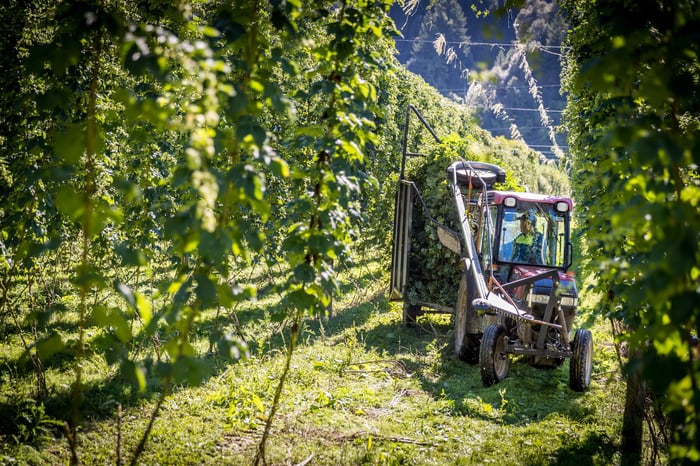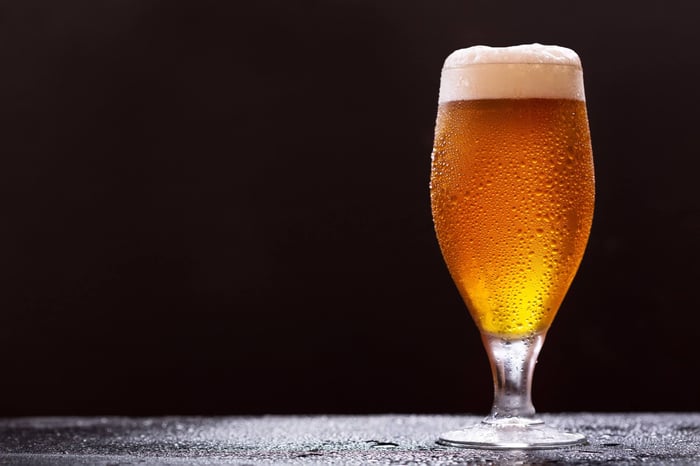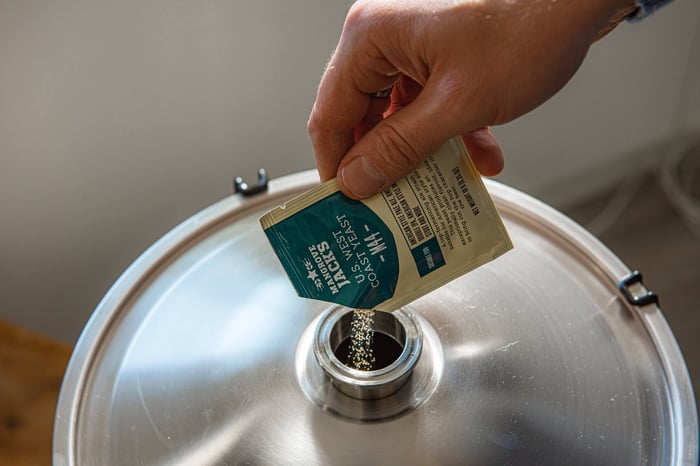Ever wondered what's behind the incredible flavours in some of Australia's most talked-about craft beers? Chances are, the answer lies across the ditch in New Zealand's remarkable hop gardens. These varieties have become essential ingredients for Australian brewers looking to create something truly special, offering flavour profiles that perfectly complement our brewing climate and style preferences.
From European Roots to Kiwi Innovation
The story starts with European migration to New Zealand during the early 19th century. Southern English and German settlers carried precious hop rhizomes across the seas, establishing varieties like Fuggle, Golding, and Spalt in New Zealand soil. These traditional European hops became the foundation of what would eventually evolve into one of the world's most innovative hop-growing industries.
For decades, these reliable European varieties served their purpose, providing the backbone for New Zealand's early brewing industry. But as any brewer knows, sometimes the best innovations come from necessity rather than choice.
The War That Changed Everything
World War One disrupted traditional supply chains, forcing New Zealand hop growers to seek alternatives. The solution came from California – the 'Cluster' variety offered the economic viability and rapid growth needed during uncertain times. This variety quickly dominated New Zealand's hop plantings, becoming the go-to choice for growers throughout the war period and beyond.
The success of Cluster created what seemed like the perfect solution – until disaster struck.
When Success Becomes Vulnerability
By 1940, the dangers of monoculture became devastatingly clear. Black root rot (Phytophthora cactorum) swept through New Zealand's Cluster-dominated hop gardens, destroying entire crops and threatening the industry's survival. Growers faced a stark choice: adapt or perish.
What happened next showcases the kind of innovation that makes our trans-Tasman neighbours such remarkable agricultural pioneers.
Innovation Through Adversity
New Zealand's hop breeders responded to crisis with creativity. They returned to those original European varieties – particularly the disease-resistant Fuggle – and launched an ambitious breeding programme. By crossing resilient traditional varieties with vigorous modern stock, they developed three revolutionary cultivars: First Choice, Smooth Cone, and Calicross.
These weren't merely replacements; they were purpose-engineered varieties selected for disease resistance, improved yield, enhanced alpha acid content, optimal maturity timing, and mechanical harvesting compatibility. This breeding programme established the foundation for modern New Zealand hop innovation.
The Nelson Region: Nature's Perfect Hop Laboratory
Today's New Zealand hop industry centres on the Nelson region of the South Island, where unique environmental conditions create what can only be described as hop terroir. The region's temperate maritime climate, distinctive soil composition, and proximity to the Tasman Sea combine to produce hops with characteristics found nowhere else on Earth.
The fact that wild hops grow freely along roadsides from Murchison to Motueka demonstrates how perfectly suited this region is for hop cultivation. Like Australia's great wine regions, Nelson's geographical advantages create ingredients with unmistakable regional character.
Perfect Growing Conditions
New Zealand's latitude of 41-42° South places it within the optimal hop-growing zone between 30° and 52°. The region provides exactly what hops need: 15 hours of daily sunlight, 120 frost-free days during growing season, and six to eight weeks below 10°C for proper winter dormancy. These conditions, combined with Nelson's unique terroir, produce hops that Australian brewers have embraced enthusiastically.
Australian Brewers' Guide to New Zealand Hop Varieties
Each variety offers Australian brewers distinct advantages, whether you're crafting sessionable ales for our climate or pushing flavour boundaries with bold experimental brews. These hops work particularly well in our conditions, offering intensity that holds up against Australian temperatures whilst providing the complex flavours that define modern Australian craft brewing.
Complete New Zealand Hop Variety Reference:
| Variety | Flavour and Aroma | Organic | Alpha Acid |
|---|---|---|---|
| Motueka™ | Intense fresh lime followed by a background of tropical fruit and lemon zest | X | 6.5-7.5% |
| Pacifica™ | A fine aroma hop with its own signature citrus "orange zest" marmalade character | 5.0-6.0% | |
| Riwaka™ | A unique aroma hop with a powerfully fuelled tropical "passion fruit" character | 4.5-6.5% | |
| Wakatu™ | A really fine dual purpose hop with a heady mix of floral and citrus characteristics | X | 6.5-8.5% |
| Nelson Sauvin™ | Nelson Sauvin has the unique ability to impart a distinctive cool climate white wine "fruitiness" | X | 12-13% |
| Green Bullet™ | A dual purpose / bittering hop with a spicy "dried fruit" character and solid finish | 11-14% | |
| Pacific Gem™ | Described as producing oaken flavours with a distinct blackberry aroma | X | 13-15% |
| NZ Pacific Jade™ | A soft bittering / dual purpose hop with fresh citrus and complex spice characters | 12-14% | |
| Dr Rudi | A dual purpose / bittering hop with classic resinous pine and lifted citrus characters | 10-12% | |
| NZ Southern Cross™ | A dual purpose / soft bittering hop with a citrus "lemon zest" character with hints of pine | 11-14% | |
| Kohatu™ | A dual purpose hop with fresh tropical fruit characters and excellent finish and bitterness | 6.0-7.0% | |
| Rakau™ | A true dual purpose hops with stone fruit and fig characters and excellent bittering qualities | X | 10.0-11.0% |
| Sticklebract | An heirloom alpha hop that delivers solid bitterness matched to pine and citrus aroma | 12.30% | |
| Wai-iti™ | A fine aroma hop with fresh peaches and apricot character | X | 2.5-3.5% |
| Waimea™ | A big alpha hop that carries an even bigger weight of oils with lots of pine and citrus | 16-19% | |
| Taiheke™ | Dual purpose US Cultivar with citrus "grapefruit/lime | X | 6-8% |
| Chinook | Dual purpose US cultivar with pine "grapefruit/spice | 12.1-12.2% | |
| Fuggle | UK aroma cultivar with mild fruit "herbal/woody | 6.10% | |
| Golding | UK aroma hop with mild, delicate and sweet floral characteristics | 4-4.2% | |
| Liberty | US aroma cultivar with mild and spicy, subtle lemon and citrus characteristics | 5.90% | |
| Styrian Golding | European aroma hop with very mild, noble and spicy hop flavours | 5.1-6.1% | |
| Willamette | US aroma cultivar with mild and pleasant, slightly spicy floral tones | 6-7.6% | |
| Wye Challenger | Dual purpose hop with balanced bittering. Spicy, clean citrusy aroma with distinct herbal notes | 8.90% | |
| Moutere™ | high alpha hop with distinctive tropical, grapefruit and passion fruit characters | 17.5-19.5% |
Brewing Success Stories: Australian Applications
Australian craft brewers have embraced these varieties with remarkable creativity. From sessionable pale ales showcasing Motueka's lime character to robust IPAs built around Nelson Sauvin's wine-like complexity, these hops have become integral to Australia's brewing identity.
The tropical fruit characters found in varieties like Riwaka and Kohatu seem perfectly suited to Australian palates, whilst the citrus intensity of varieties like Waimea provides the bold flavours that define modern Australian hop-forward styles.
Seasonal Brewing Strategies
Here's where geography works in our favour – New Zealand's harvest season delivers fresh hops during our spring months, perfect timing for planning summer brewing projects. Many Australian brewers now structure their seasonal releases around New Zealand hop availability, creating limited editions that showcase these varieties at peak freshness.
Climate Considerations for Australian Brewers
These varieties have proven remarkably well-suited to Australian brewing conditions. Their bold flavour profiles hold up beautifully in our climate, whilst their aromatic intensity makes them ideal for the hop-forward styles that Australian beer lovers have embraced.
Whether you're brewing in Perth's heat or Melbourne's variable conditions, these hops maintain their character and provide the reliability that commercial and home brewers alike depend upon.
Building Your Hop Program
Start with versatile varieties like Wakatu for balanced citrus character, or dive straight into the unique with Nelson Sauvin for something genuinely distinctive. Many successful Australian brewers have built signature beers around single New Zealand varieties, whilst others create complex blends that showcase multiple characters.
The key is understanding that these aren't just substitutes for other hops – they're unique ingredients that can define your brewing style and create beers that stand out in Australia's competitive craft market.
Grainfather Team










